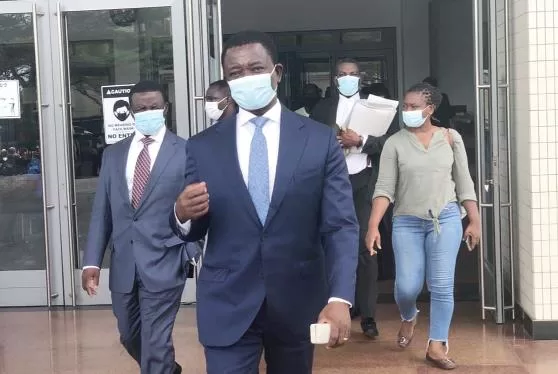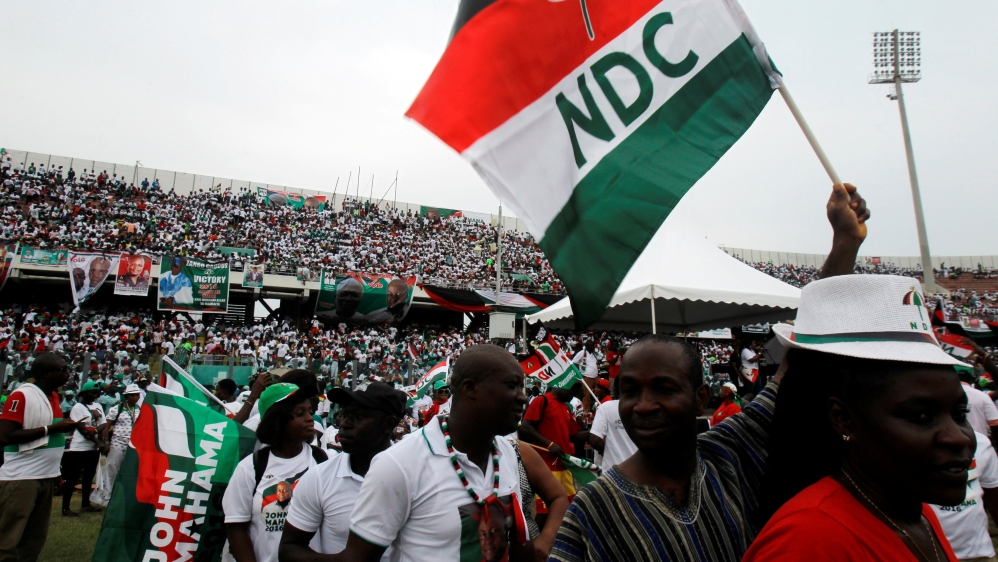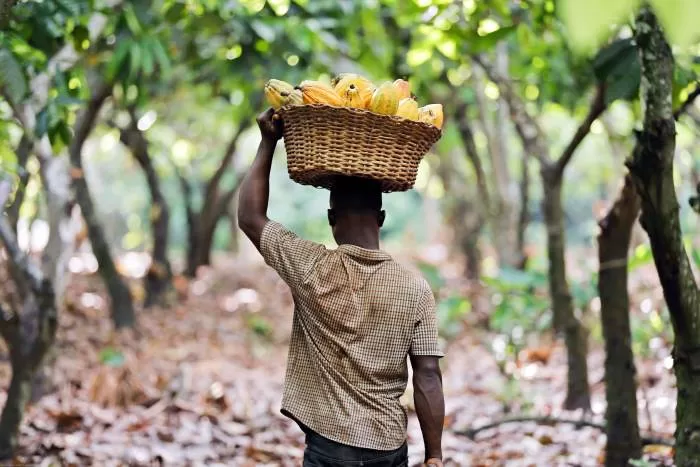The former Chief Executive of COCOBOD, Dr. Stephen Kwabena Opuni has confidently declined to mount the witness box as he closes his case in the infamous COCOBOD trial on Monday, February 12, 2024.
His decision was informed by the indefectible and irrefutable evidence adduced by 11 credible witnesses he assembled, whom many observers, including lawyers, believe have completely exonerated him of any wrongdoing whilst at the helm of affairs at COCOBOD.
Counsel for Dr. Opuni, lawyer Samuel Codjoe confirmed his client’s decision to the court In exercise of his right under article 19 (10) of the 1992 constitution on Monday.
“The first accused is satisfied with the evidence of his witnesses and the evidence before the court and will not give evidence personally,” the counsel said.
Dr. Opuni’s 11 witnesses included farmers who applied lithovit foliar fertilizer on their cocoa farms, former and current senior technical and management staff of COCOBOD, and a board chairman, who actively participated in the certification, procurement, payment as well as field observation of the performance of lithovit fertilizer: a product the court heard was described by farmers as “messiah” and “saviour’ because it worked “magic” on their farms.
Dr. Stephen Opuni, businessman Seidu Agongo and Agricult Ghana Ltd are currently facing combined 24 charges: Abetment of crime, defrauding by false pretence, contravention of the Public Procurement Act, willfully causing financial loss to the state, manufacturing fertilizer without registration, selling misbranded fertilizer and selling adulterated fertilizer, Corruption by public officer. Seidu Agongo and Agricult Ghana Ltd were however acquitted on additional charges bothering on money laundering.
The three have pleaded not guilty to the charges and are on a GH¢300,000.00 self-recognizance bail each.
The trial actually started in March 2018 after the state pressed 27 charges against the accused persons. The charge sheet was signed by Chief State Attorney Evelyn Keelson on behalf of the then Attorney General. This was after the uncle of the Chief State Attorney, the then Senior Minister Yaw Osafo Marfo had ordered the CID of the Ghana Police Service to take over the case from the Economic and Organised Crime Office (EOCO) that refused to take any legal action after months of investigations found the accused blameless.
The state closed it case in March 2021 calling seven witnesses. After a controversial ruling on the submission of no case, which became a subject of legal gymnastic at the Supreme Court after the then trial judge, now retired Justice Clemence Jackson Honyenuga, in his closet discarded 18 exonerating evidence, the three accused persons were asked to open their defence. The judge was once barred by the Supreme Court from sitting on the case for being bias.
“You can only judge the quality of something after you have tried, used, or experienced it”. This is how the Cambridge dictionary explained the popular idiom “The proof of the pudding is in the eating”. It is for this reason why many find it surprising that, the state, with all the available resources at its disposal, would call as many as seven witnesses, but not a single of them was a farmer with a firsthand experience on the efficacy or otherwise of lithovit foliar fertilizer, which is at the centre of the trial.
A close attempt by the state to get farmers to toe the narrative that lithovit is a worthless fertilizer backfired. One of the two farmers the state was able to persuade to give statements at EOCO, Nana Obeng Akrofi, who happens to be a board member of COCOBOD, said he harvested just two extra cocoa bags after he applied the product on his farm, whilst the other farmer Emmanuel Obeng said he had bumper harvest when he applied lithovit.
After being deserted by their best bet, it’s quite explanatory why the prosecution did not dare to call a single farmer to testify for the state in court.
Defence Witnesses
Interestingly, Dr. Opuni, the first accused person, called three farmers out of his 11 witnesses, including a one-time National Best Farmer, who testified about the efficacy of lithovit fertilizer when they applied it on their farms, discrediting claims that the fertilizer was worthless, let alone causing financial loss to the state.
The First defence witness was a former Director of Finance at COCOBOD, Mr. Charles Tetteh Dodoo testified to the fact that he was actively involved in the procurement process and purchase of lithovit as well as authorizing payments, indicating how clean the whole process was. Then Assin Fosu-based and 2013 National Most Promising Young Cocoa Farmer Samuel Torbi, and Amo Amankwaa a cocoa farmer from Berekum as the Second and Third witnesses respectively testified about the efficacy of lithovit fertilizer.
A former Board Chairman of COCOBOD Ambassador Daniel Ohene Agyekum who was the Fourth witness pointed out that the Board as well as the Entity Tender Committee were fully aware of the nature, quality and everything about lithovit and duly approved it for purchase by management of COCOBOD. He was followed by a retired District Cocoa Officer of CHED Samuel Adigler as the Fifth witness who had direct interactions with farmers who applied lithovit and testify to how farmers lobbied him for the product as well as personally observing the performance of the fertilizer on farms. Then the 2017 National Best Farmer Philip Baffour Kweku Agyemang kept singing the praise of Lithovit Foliar Fertiliser in court, insisting that he can personally attest to the efficacy of Lithovit.
The Seventh defence witness was Peter Okyere Boateng who retired from COCOBOD in 2017 as the Deputy Executive Director of Cocoa Health and Extension Division (CHED) of COCOBOD. He testified to seeing, for himself, how farms that applied the lithovit were doing well compared to others that used different fertilizers, explaining why farmers lobbied him for lithovit fertilizer.
The former Executive Director of Cocoa Research Institute of Ghana (CRIG), Dr. Gilbert Anim Kwapong, the Eighth witness confirmed following due process in issuing and renewing certificate for lithovit, confirming its efficacy as well as being liquid in substance. He was followed by a banker Reginald Adukwa, then with ECOBANK, who confirmed to the court that the GH¢25,000 deposited into Dr. Opuni’s account by Seidu Agongo was Dr. Opuni’s own money.
Dr. Richard Adu-Acheampong the current Deputy Executive Director at CRIG mounted the box as the Tenth defence witness exposing the wrongdoing of first prosecution witness Dr. F.M Amoah. He noted that Dr. F.M Amoah signed the first certificate for lithovit without getting authorization from COCOBOD’s management nor the CTCM of CRIG, and yet prosecution conveniently placed the blame on Dr. Opuni, until Dr. Adu-Acheampong tendered in evidence a document with various minutes on it including that of Dr. F.M. Amoah and others advising Dr. F.M. Amoah not to sign the certificate until Agricult makes a request.
The advice was of no use because Dr. F.M. Amoah had already circumvented the process several days even before asking for the technical advice from the CTCM, and also failed to inform them he had already signed the certificate before and after.
Mr. Samuel Amponsah a former Deputy Executive Director of CHED who retired in 2019 closed Dr. Opuni’s case as the Eleventh defence witnesses. He was deeply involved in the training of farmers on the use of fertilizer among others, and educated the court about the two types of fertilizers – granular and foliar – noting that the name foliar attached to lithovit is a straight forward indication that the fertilizer is liquid. He explained that the granular are solid ones like pebble size and others like sugar, and foliar is in liquid form.
Judging by the sterling performance of his witnesses and the inability of the prosecution to discredit their revealing evidence, many including legal luminaries believe there is no need for Dr. Stephen Opuni to mount the witness box after the overwhelming evidence exonerating him.
The trial is currently being presided over by a High Court judge Justice Aboagye Tandoh who took over the case from Justice Kwasi A. Gyimah, who was controversially transferred to Kumasi after he decided to restart the highly politicized case de novo which he inherited following the retirement of Supreme Court judge, Justice Clemence Honyenuga.


















